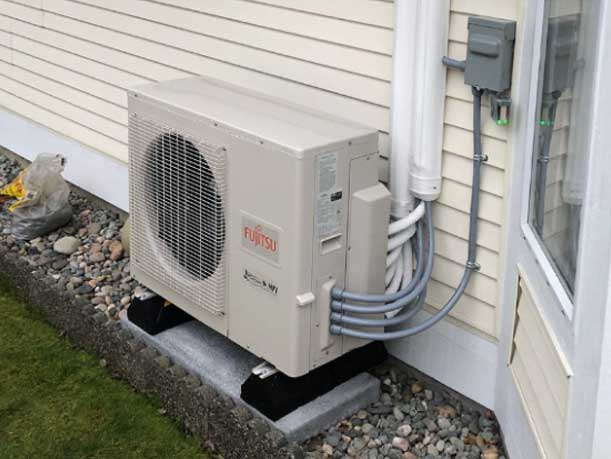Tax Deductions for HVAC Repairs: A Guide for Real Estate Professionals
 Depreciate HVAC in Commercial Rental Real Estate in Henderson NV: Guide to expensing HVAC costs. Call 702-539-2801. The good news for commercial real estate owners in Las Vegas and Henderson, Nevada, is that as of 2018, you likely won’t need to depreciate your HVAC system! The Tax Cuts and Jobs Act (TCJA) introduced Section 179, which allows for full expensing of qualified property, including most HVAC systems for nonresidential real property (commercial buildings).
Depreciate HVAC in Commercial Rental Real Estate in Henderson NV: Guide to expensing HVAC costs. Call 702-539-2801. The good news for commercial real estate owners in Las Vegas and Henderson, Nevada, is that as of 2018, you likely won’t need to depreciate your HVAC system! The Tax Cuts and Jobs Act (TCJA) introduced Section 179, which allows for full expensing of qualified property, including most HVAC systems for nonresidential real property (commercial buildings).
Here’s a breakdown of what this means for you:
- Expense vs. Depreciation: Depreciation spreads the cost of an asset over its useful life, allowing you to deduct a portion of the cost each year. Expensing allows you to deduct the entire cost of the qualified property in the year it’s placed in service. This can significantly reduce your current tax burden.
- Eligibility:
o The HVAC system must be for nonresidential real property (meaning a commercial building).
o The property must be placed in service after the date the property was first placed in service. In simpler terms, this applies to new HVAC systems installed in buildings that weren’t previously operational.
Important Considerations:
- While Section 179 allows for full expensing of most HVAC systems, it’s always best to consult with a tax professional. They can review your specific situation and confirm eligibility.
- Section 179 has a spending limit that adjusts annually. Be sure to check the IRS website for the current limit to ensure your HVAC system qualifies for full expensing.
- There may be additional state or local tax regulations to consider. Consult with your tax professional for comprehensive guidance.
Alternatives (if Section 179 doesn’t apply):
- If your situation doesn’t meet the criteria for full expensing under Section 179, you can still depreciate the cost of your HVAC system over its useful life (typically 39 years for commercial real estate).
- This will allow you to deduct a portion of the cost each year on your tax return.
Key Takeaways:
- The Tax Cuts and Jobs Act offers significant tax benefits for commercial real estate owners in Las Vegas and Henderson regarding HVAC systems.
- Full expensing under Section 179 can be highly advantageous, potentially lowering your current tax burden.
- Consult with a tax professional to confirm eligibility and navigate any complexities.
Additional Resources:
1) IRS Section 179 Information: https://www.irs.gov/newsroom/depreciation-expense-helps-business-owners-keep-more-money
Real estate tax professionals face a recurring challenge: classifying building expenses as repairs (deductible) or capital improvements (depreciated). This can be especially complex for HVAC systems, which are constantly evolving with new technologies.
The Impact of Proper Maintenance on Tax Deductions
Without regular maintenance, HVAC components deteriorate faster, leading to costly repairs. But understanding the work performed allows tax professionals to determine if the cost qualifies as a deductible repair expense. This can significantly reduce current tax burdens compared to depreciating the cost over a long period (27.5 years for residential rental real estate, 39 years for commercial).
Tax Cuts and Jobs Act (TCJA) and HVAC Expenses
The TCJA introduced Section 179 which allows for expensing certain HVAC costs for nonresidential real property. To qualify, the HVAC system must be installed in a property that wasn’t previously operational.
Is it a Repair or Capital Improvement? Demystifying HVAC Costs for Tax Purposes
Real estate tax professionals grapple with classifying HVAC expenses as repairs (deductible) or capital improvements (depreciated). The distinction hinges on whether the work results in a betterment or restoration of the HVAC system, a major building component.
Identifying Capital Improvements in HVAC Systems
According to IRS regulations (Regs. Sec. 1.263(a)-3(d)), replacing a substantial portion of a major building system qualifies as a capital improvement. HVAC is one of the eight building systems explicitly mentioned in the regulations.
Common HVAC Components and Tax Implications
The regulations list examples of major HVAC components like compressors, furnaces, chillers, ducts, diffusers, air handlers, and cooling towers. These components are critical for the overall function of the HVAC system.
Understanding Your Contractor’s Invoice
While the technical workings of HVAC systems are complex, familiarizing yourself with common components listed on contractor invoices is crucial. This guide will equip you with essential knowledge and a series of questions to help you determine the proper tax treatment of HVAC expenses.
HVAC Repair vs. Capital Improvement: A Tax Deduction Guide for Real Estate Professionals
Understanding the distinction between repairs and capital improvements is crucial for real estate tax professionals. This distinction determines if HVAC expenses are deductible or depreciated.
Step 1: Familiarize Yourself with Common HVAC Components
- Air conditioner: Cools spaces using refrigeration cycles (common in residential buildings).
- Boiler: Heats fluid that circulates throughout a building.
- Ductwork system: Distributes air throughout a building (commonly made of galvanized steel or aluminum).
- Furnace: Heats air or an intermediate fluid using fuel.
- Packaged terminal unit (PTAC): Combines air conditioning and heating in a single unit (often found in hotels).
- Piping system: Transports heated/chilled water throughout a building.
- Rooftop unit (RTU): Air handler designed for outdoor use.
- Chiller system: Cools liquid that flows through pipes to cool buildings.
- Heat pump: Moves thermal energy in the opposite direction of heat flow.
- Other components: Coils, compressors, condensers, evaporators, air handlers, makeup air units, terminal units, thermostats, variable air volume (VAV) units.
Step 2: Determine the Unit of Property (UOP)
The IRS requires identifying the relevant UOP (building system) when classifying repairs and improvements. The HVAC system is a specifically defined UOP. If you own/lease the entire building, the entire HVAC system is considered the UOP. If you lease a portion, only the leased portion of the HVAC system is considered the UOP.
Step 3: Apply the B-A-R-I Tests
These tests (Betterment, Adaptation, Restoration, Improvement) help determine if the HVAC work is a deductible repair or a capital improvement.
- Betterment: Did the work enhance the HVAC system’s functionality or efficiency beyond its original state?
o Consider:
a) Reason for replacement
b) Time elapsed since building acquisition
c) New vs. old component type
d) Material upgrades
e) Building enlargement - Adaptation: Did the work modify the HVAC system for a new building use?
o Consider:
a) Purpose of the HVAC costs (e.g., converting office to restaurant) - Restoration: Did the work restore the HVAC system to its original functionality after deterioration?
o Consider:
a) Reason for component replacement
b) Major component replacement
c) Extent of replacement
d) Returning to ordinary operating condition
e) Retirement loss/partial disposition deduction for old system - Improvement: Is the HVAC work part of a larger capital improvement project?
o Consider:
a) Reason for the HVAC work
o Example: Renovating a space might require relocating the air handler and ductwork, which would be capitalized as part of the renovation project.
Understanding these distinctions empowers real estate tax professionals to accurately classify HVAC expenses, potentially reducing tax burdens.
Read More Articles >>
7 Reasons Every Home Needs a Humidifier
How to Upgrade Your HVAC – Without Giving Up Your Ducts




